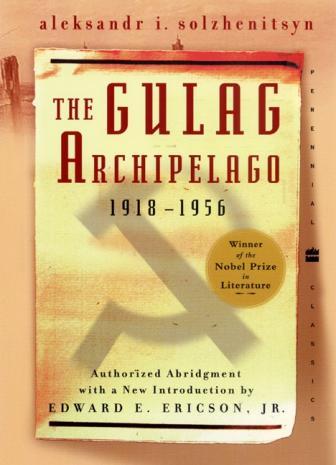Solzhenitsyn's widow cuts 'Archipelago' to student size

Alexander Solzhenitsyn's widow has abridged his watershed book, "The Gulag Archipelago", for students in Russia in the latest move to rehabilitate the Soviet-era dissident, newspapers said Friday.
Natalya Solzhenitsyn said she cut her husband's monumental three volume work by 80 percent to be palatable to students and hoped it would be taught as early as next year.
"We had to cut it by about five times.... But I hope that I managed to keep the distinctness of every line and not lose the heat, anger, passion and humour of the original," she told the Nezavisimaya Gazeta.
"The book has become so thin, it seems to me it will not only be possible for school children to get through but also fascinating to them."
Readings from the once-banned book were added to the school curriculum this year by the ministry of education.
Solzhenitsyn's 64-chapter tome on the network of forced labour camps in which millions perished came to symbolize institutionalized repression under Soviet dictator Joseph Stalin.
"Readers must understand (from the book) that the Gulag was a system. They must understand its spread over the country," Natalya Solzhenitsyn said.
Two of the dissident author's other works - the far shorter "One Day in the Life of Ivan Denisovich" and "Matryona's House" which are both equally critical of the communist regime - are already part of the Russian curriculum.
But his writings remain controversial as Russia has yet to face up in full to its traumatic recent history, Soviet secret police archives stay sealed, and Stalin is viewed by many as an unimpeachable hero for his role in defeating Nazi Germany in World War II.
Solzhenitsyn, who died last year aged 89, won the Nobel Peace Prize for Literature in 1970. He was expelled from the Soviet Union in 1974 after authorities discovered manuscripts for "The Gulag Archipelago".
He lived in exile for 20 years in Germany, Switzerland and later the United States before returning in 1994 after the fall of communism.
Join our commenting forum
Join thought-provoking conversations, follow other Independent readers and see their replies
Comments
Bookmark popover
Removed from bookmarks